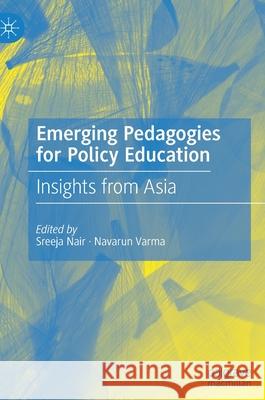Emerging Pedagogies for Policy Education: Insights from Asia » książka
topmenu
Emerging Pedagogies for Policy Education: Insights from Asia
ISBN-13: 9789811658631 / Angielski / Twarda / 2022 / 278 str.
Emerging Pedagogies for Policy Education: Insights from Asia
ISBN-13: 9789811658631 / Angielski / Twarda / 2022 / 278 str.
cena 564,88
(netto: 537,98 VAT: 5%)
Najniższa cena z 30 dni: 539,74
(netto: 537,98 VAT: 5%)
Najniższa cena z 30 dni: 539,74
Termin realizacji zamówienia:
ok. 22 dni roboczych.
ok. 22 dni roboczych.
Darmowa dostawa!
Kategorie BISAC:
Wydawca:
Palgrave MacMillan
Język:
Angielski
ISBN-13:
9789811658631
Rok wydania:
2022
Wydanie:
2022
Ilość stron:
278
Waga:
0.48 kg
Wymiary:
21.01 x 14.81 x 1.75
Oprawa:
Twarda
Wolumenów:
01
Dodatkowe informacje:
Wydanie ilustrowane











